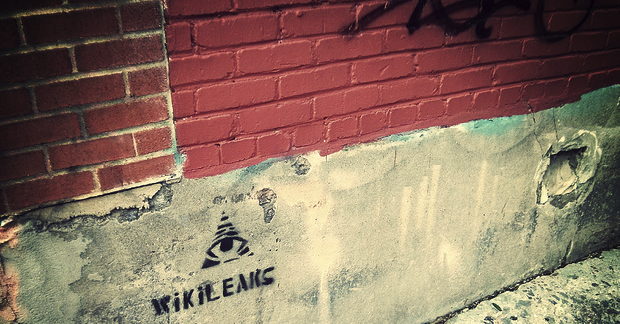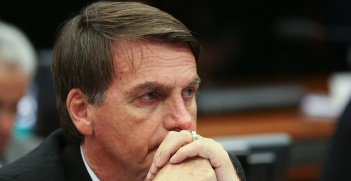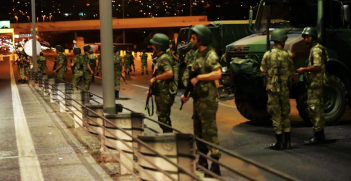Who is WikiLeaks Working For?

There was global media coverage when WikiLeaks recently published the Democratic National Conference email archive and the so-called Erdoğan emails belonging to Turkey’s ruling party. In both cases it was done in the name of revealing hidden truths and promoting transparency. However, these revelations stand out because they were not leaks; there were no whistleblowers. Instead, they appear to result from the hacking of WikiLeaks’ own game.
WikiLeaks’ recent publication of documents from the Democratic National Committee (DNC) and the ruling Justice and Development Party of Turkey (AKP) raises a number of questions about how information is released in the name of transparency. The two cases demonstrate how far the practices of WikiLeaks can cross the line of traditional whistleblowing and how the organisation can be used as a tool of the powerful.
DNC leaks
To put the DNC revelations bluntly, a foreign government selected the DNC as a political target, digitally infiltrated its network and exposed its inner turmoil (ostensibly to sow discord or cover up a larger hacking program) publicly through WikiLeaks. Although the DNC was ‘pwnd’ by having the material published, WikiLeaks was made a pawn in greater geopolitical games.
There is now consensus among security firms, intelligence agencies, and marginally independent press that Russia’s security services infiltrated the DNC servers. Even Glenn Greenwald’s cabal at The Intercept suggests the potential for a false flag operation here is small.
To be clear, we’re talking about the Russian intelligence agencies, the FSB and GRU, using WikiLeaks to forward Russian goals. WikiLeaks published what was given to it by these security services while awaiting more material. From this perspective it matters less what the DNC internal emails said (we know the DNC didn’t like Bernie Sanders) than why the information was made public in the first place and by whom. Or, the reality could be worse: what if the Russians judiciously changed a sentence of an email here and there?
Erdoğan emails
In the case of the AKP leaks, WikiLeaks disclosed data from the ruling AKP in Turkey, but the reality was not the lauded story of online censorship or freedom of the press. Corporate media and even independent voices (including Edward Snowden) got the AKP-WikiLeaks story wrong, focusing on Turkey’s reaction rather than the content and its mediation.
The AKP leaks story was actually about a hacker using WikiLeaks to make the private details of thousands of Turkish citizens easily visible. This story broke when well-known academic of Turkish origin Zeynep Tufekci wrote a piece for the Huffington Post that she summarised with her tweet “Instead of ‘AKP emails’, Wikileaks dumped private info of ALMOST EVERY WOMAN in Turkey Yes.”
There was some truth to this. The hacker WikiLeaks relied upon created a database from his hack that included private information on thousands of people in Turkey, listing their political affiliation, gender, home addresses, etc. WikiLeaks decided to link to this database on its social media feed.
Meanwhile, Turks point out that rather than exposing inner circles of power, most of the emails WikiLeaks published are to the AKP from ordinary citizens (about fixing potholes etc.). The visibility WikiLeaks brought to the coup in Turkey did not expose truth in the inner workings of the Erdoğan camp. Instead, it radically reconfigured the visibility of personal data of Turkish citizens for the online world.
Hacking leaks or leaking hacks?
Both the DNC and AKP cases were dependent on a hacker offering information to WikiLeaks, which affected the efficacy of each case and puts the virtues of whistleblowing itself at risk.
At issue here is not the political virtue of WikiLeaks itself, but how publishing hacked data challenges the ethical licence of radical whistleblowers and publishers to act at all. Attacking individuals or groups by hacking information under the guise of transparency diminishes the ethical ground on which whistleblowing stands.
Whistleblowing is traditionally framed as an altruistic and ethical action in which an individual independently decides to create a public good (information) when there is a democratic need to do so. Whistleblowing helps solve what Harvard scholar Archon Fung describes as the “defensive” information problem, when leaks allow citizens to protect themselves against hidden actions of powerful organisations. However, WikiLeaks’ latest disclosures on the DNC in the US and the AKP in Turkey did not serve that purpose.
These two cases reaffirm that even in the age of radical leaks on the internet, the instantaneous and complete revelation of the truth remains a pipe dream. Even in mass data leaks, disclosure will always be a selective and political act. Thus, the pertinent question is who is smoking us up, and why?
WikiLeaks has always been coy about whether or not they rely on leakers volunteering material to be published. There is evidence that WikiLeaks siphoned documents off a Tor exit node, with the organisation publicly claiming that up to a “handful”’ of documents were sourced in this way. However, in a boastful 2007 email that was later leaked to cryptome.org, Assange wrote:
“Hackers monitor chinese (sic) and other intel as they burrow into their targets, when they pull, so do we.…Near 100,000 documents/emails a day. We’re going to crack the world open and let it flower into something new….We don’t even know a tenth of what we have or who it belongs to.”
If the boast is to be believed, WikiLeaks was siphoning up a lot of material without their sources’ knowledge. Radically disclosing these documents, while not following the virtue of whistleblowing, at least expressed a slightly more Machiavellian virtu of leaking via double-blind publishing: WikiLeaks can remain blind to the identities and motivations of whomever is transmitting documents it leaks, while whomever is transmitting these documents remains blind to WikiLeaks plans of disclosure.
But the AKP and DNC disclosure cases are different. The normative democratic ideal of whistleblowing has been upended. The practical effect of the AKP disclosures failed to expose the abuses of AKP power and instead made visible the details of Turkish citizens. In the DNC case, WikiLeaks allowed itself to be used by the Russian state for its own interests. That WikiLeaks’ own ethos was hacked by these cases is clear, but whether the organisation can recover its claim to political truth is not.
Luke Heemsbergen researches how the political and the digital collide at the University of Melbourne. He’s just completed a PhD on radical transparency and also works on the sociopolitical implications of decentralising additive-manufacturing. He was a graduate intern at Harvard’s Berkman Klein Center and has worked at Canada’s Department of Foreign Affairs. This article is published under a Creative Commons Licence and may be republished with attribution.





